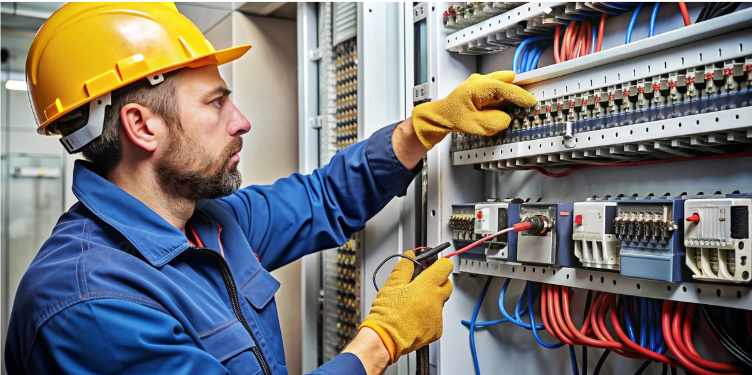Renovations are exciting. They bring fresh energy to a home, whether you’re creating an open-plan living space or updating your kitchen. But amidst the excitement of choosing paint colors and new furniture, it’s easy to overlook what’s behind the walls. Preparing your electrical system isn’t just a box to tick; it’s a critical step that ensures your renovated space is safe, functional, and ready for modern life. At Cornell Electrical, we’ve seen firsthand how a little planning can make a big difference.
Before you knock down a single wall, understanding the state of your home’s electrical infrastructure is essential. A renovation provides the perfect opportunity to address any underlying issues and upgrade your system to meet future needs. This guide will walk you through how to prepare your electrical system for a smooth and successful renovation.
Assess Your Current Electrical System
The first step is to get a clear picture of what you’re working with. Older homes, in particular, may have electrical systems that are not equipped to handle the demands of modern appliances and technology. An overloaded or outdated system can pose significant safety risks, including electrical fires.
A professional inspection is the most reliable way to assess your system. A qualified electrician in Adelaide Hills can identify several key issues:
- Outdated Wiring: Materials like aluminium or knob-and-tube wiring were common in older homes but are now considered unsafe and may not comply with current building codes.
- Overloaded Circuits: If your circuit breaker frequently trips, it’s a sign that your circuits can’t handle the electrical load. Renovations, especially in kitchens, often introduce new, power-hungry appliances that will only worsen the problem.
- Safety Hazards: An inspection can uncover hidden dangers like faulty outlets, improper grounding, or a lack of Residual Current Devices (RCDs), which are crucial for preventing electric shock.
Knowing the condition of your electrical system allows you to create a realistic budget and plan for your renovation.
Plan and Upgrade for the Future
Your renovation isn’t just about how your home looks now; it’s about how it will function for years to come. Modern lifestyles rely heavily on electricity, from charging multiple devices to running smart home systems. It’s important to plan for both the increased power demands during construction and your long-term needs after the project is complete.
Consider these upgrades as part of your electrical plan:
- New Wiring: If your inspection revealed outdated wiring, replacing it should be a top priority. This ensures safety and compliance with modern standards.
- Additional Outlets: Think about how you will use each room. Do you need more outlets by your bedside for lamps and chargers? What about in the kitchen for a coffee machine, air fryer, and mixer? Adding them during a renovation is far easier and cheaper than doing it later.
- Upgraded Electrical Panel: Your electrical panel, or switchboard, is the heart of your home’s electrical system. If your current panel is old or at capacity, you will likely need to upgrade it to support new circuits and increased power usage.
Working with an experienced electrician to map out your needs will ensure your new space is as practical as it is beautiful.
Follow Safety Measures During Renovation
Construction sites can be chaotic, and electrical work adds a layer of risk that requires careful management. Prioritizing safety is non-negotiable to protect both the workers and your property.
Here are some essential safety measures:
- Turn Off the Power: Before any demolition or electrical work begins, the power to the relevant circuits must be turned off at the main switchboard. A professional electrician should verify that the circuits are de-energized.
- Label Circuits: Clearly labeling each circuit in your electrical panel helps prevent accidental reactivation and makes the process more efficient for tradespeople.
- Use Proper Safety Gear: Anyone working near electrical components should use appropriate personal protective equipment (PPE).
- Hire a Certified Electrician: Electrical work is not a DIY job. Hiring a certified and insured electrician in Adelaide Hills is the only way to guarantee that the work is done safely and to code. Cornell Electrical provides licensed professionals who understand the specific requirements of renovation projects.
Conclusion
Navigating the complexities of a renovation’s electrical needs can be overwhelming. Choosing the right partner makes all the difference. Cornell Electrical specializes in supporting homeowners through their renovation journeys, from initial planning to final inspection.Our team brings expertise in handling comprehensive electrical upgrades, ensuring your home is equipped for the future. We conduct thorough safety inspections and provide clear, practical advice to help you make informed decisions. By partnering with a trusted local electrician in Adelaide Hills, you gain peace of mind knowing that your project is in safe hands.






